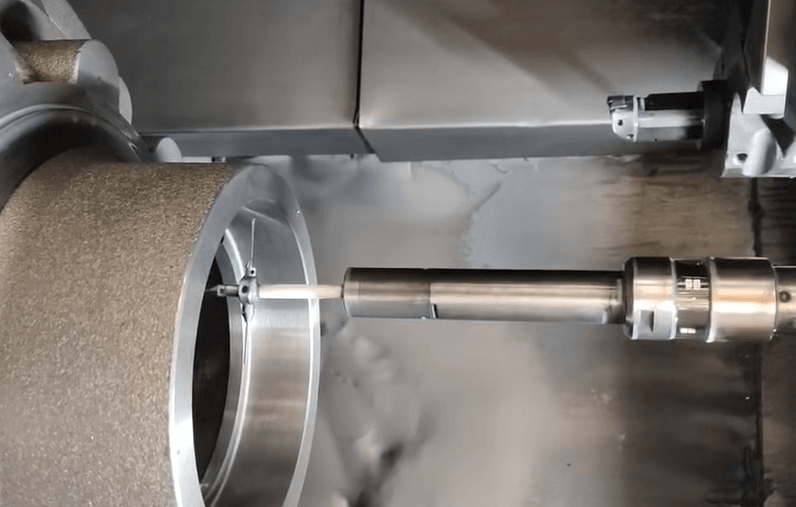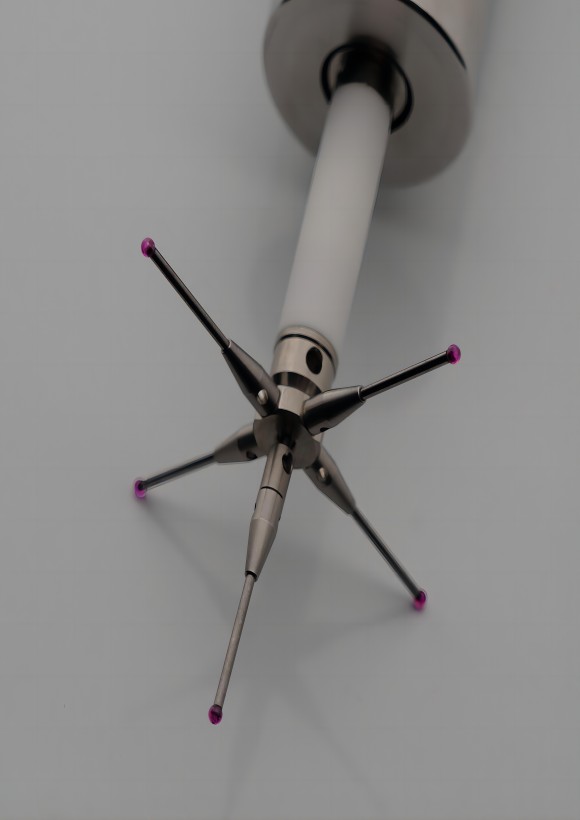Email: [email protected] Phone: (+86) 134 1323 8643
In the world of scientific inquiry and industrial applications, the demand for precise and adaptable tools for measurement has never been stronger. Modular probe systems have surged to the forefront, offering a unique blend of flexibility, expandability, and ease of use that has transformed data collection across various fields. This article delves into the intricate workings of modular probe systems, exploring their core principles, far-reaching impact, and the distinct advantages they hold over traditional probe systems. Additionally, it sheds light on the latest trends shaping the modular probe system landscape and addresses frequently asked questions to provide a comprehensive understanding of this transformative technology.
The Versatility of a Modular Probe System
At the heart of a modular probe system lies its ingenious design, characterized by interchangeable components that can be tailored to specific application needs. This modularity empowers researchers and industrial professionals to seamlessly adapt the system to measure a wide range of physical properties, encompassing temperature, pressure, flow, and electrical signals. Furthermore, modular probe systems can be configured to facilitate simultaneous measurements of multiple parameters, catering to applications that demand the monitoring of several properties at once.
The inherent flexibility of modular probe systems has propelled them to the forefront of various research and industrial settings. They have become indispensable tools in laboratory investigations, enabling researchers to gather intricate data that paves the way for groundbreaking discoveries and innovations. In industrial environments, modular probe systems play a pivotal role in optimizing production efficiency, enhancing product quality, and ensuring the meticulous control and monitoring of industrial processes. Their reach extends beyond traditional boundaries, finding increasing applications in healthcare settings for patient monitoring and in environmental monitoring initiatives to safeguard ecosystems.
The Impact of Modular Probe Systems
Modular probes have left an indelible mark on a multitude of industries, revolutionizing data acquisition practices and propelling advancements across various domains. They have empowered researchers to venture into uncharted territories of scientific exploration, enabling them to gather previously unattainable data that has fueled groundbreaking discoveries and innovations. In industrial settings, modular probe systems have become indispensable tools for optimizing production efficiency, enhancing product quality, and ensuring meticulous control and monitoring of industrial processes. Their reach extends beyond traditional boundaries, finding increasing applications in healthcare settings for patient monitoring and in environmental monitoring initiatives to safeguard ecosystems.
The Core of Modular Probe System
The foundation of a modular probe system lies in its modular architecture. Each module encapsulates a sensor and accompanying electronic components meticulously designed to measure a specific physical parameter. These modules integrate seamlessly with a central controller, responsible for orchestrating the collection and processing of acquired data.
Modular Systems vs. Traditional Systems: A Clear Advantage
Modular probe systems stand out from their traditional counterparts by virtue of several compelling advantages:
- Unmatched Versatility:Modular probe systems can be meticulously tailored to meet the specific requirements of diverse applications, whereas traditional probe systems often lack this adaptability.
- Unparalleled Expandability:Modular probe systems can seamlessly accommodate the addition of new modules, enabling the expansion of their functional capabilities. Traditional probe systems, on the other hand, typically exhibit limited expandability.
- Unrivaled Ease of Use:Modular probe systems are designed with user-friendliness in mind, making installation and maintenance a breeze, even for those without specialized expertise. Traditional probe systems often require in-depth technical knowledge for setup and upkeep.
- Exceptional Reliability:The modular architecture of these systems inherently enhances their overall reliability, minimizing downtime and ensuring consistent performance.
Trends in Modular Probe Systems
The realm of modular probe is undergoing continuous evolution, driven by relentless innovation and a стремление (stremlenie – a strong desire or effort) to address emerging needs. Among the key trends shaping the future of this technology are:
- Miniaturization:Modules and sensors are becoming increasingly compact, paving the way for their integration into smaller, more portable devices.
- Wireless Connectivity:Modular probe systems are increasingly incorporating wireless connectivity, enabling remote monitoring and data transmission.
- Internet of Things (IoT) Integration:Modular probes are seamlessly integrating with the Internet of Things (IoT) ecosystem, facilitating real-time data collection and sharing.
Frequently Asked Questions: Demystifying Modular Probe Systems
Q: In which fields are modular probe systems applicable?
A: Modular probes boast a wide range of applicability, spanning diverse domains such as:
- Laboratory research
- Field data acquisition
- Process control
- Healthcare
- Environmental monitoring
B: How do modular probe systems differentiate from traditional probe systems?
Modular probes offer several key advantages over traditional probe systems:
- Flexibility:Traditional probe systems are typically designed for a specific purpose and lack the modularity that allows for customization. Modular probe systems, on the other hand, can be adapted to various applications by simply swapping out modules.
- Expandability:Traditional probe systems are often limited in their functionality, and adding new capabilities often requires purchasing an entirely new system. Modular probe systems can be easily expanded by adding new modules, making them a more future-proof investment.
- Ease of Use:Traditional probe systems can be complex to set up and maintain, often requiring specialized expertise. Modular probe systems are designed to be user-friendly, with intuitive interfaces and straightforward installation and maintenance procedures.
- Cost-Effectiveness:While the upfront cost of a modular probe system might be higher than a traditional system, the long-term cost of ownership is often lower. The modularity allows for upgrades and expansion without needing to replace the entire system, making it a more adaptable and cost-effective solution in the long run.
- Reliability:The modular design of these systems can actually enhance their overall reliability. If one module malfunctions, it can be easily replaced without affecting the functionality of the remaining modules. Traditional probe systems, with their fixed design, are more susceptible to complete system failure if a single component malfunctions.
C: How do I choose the right modular probe system for my research?
Selecting the optimal modular probe for your research endeavors hinges on several key factors:
- Required Measurements:The first step is to identify the specific physical parameters you need to measure. Modular probe systems offer a wide range of modules catering to diverse parameters like temperature, pressure, flow, and electrical signals. Ensure the system you choose has modules compatible with your specific measurement needs.
- Measurement Accuracy:The level of precision required for your research is crucial. Different modules offer varying degrees of accuracy. Choose a system that delivers the accuracy necessary for your specific application.
- System Flexibility:Consider the potential future needs of your research. If you anticipate needing to measure additional parameters in the future, opt for a system with high expandability to accommodate future growth.
- Budget:Modular probe systems come in a range of price points. Determine your budget constraints and choose a system that offers the functionality you require within your budgetary limitations.
- Manufacturer Reputation:Opt for a system from a reputable manufacturer known for high-quality products and reliable customer support.
By carefully considering these factors, you can select a modular probe that perfectly aligns with your research requirements and empowers you to delve deeper into your field of study.
Modular probes have emerged as a game-changer in the realm of data acquisition. Their adaptability, expandability, and user-friendliness have revolutionized measurement practices across scientific research and diverse industrial applications. As the technology continues to evolve, with trends like miniaturization, wireless connectivity, and IoT integration gaining traction, modular probe systems are poised to play an even more pivotal role in shaping the future of data collection and analysis. By harnessing the versatility of modular probe, researchers and industry professionals can unlock a world of possibilities, propelling advancements and fostering innovation across a multitude of domains.
Katrina
Mechanical Sales Engineer with 10+ years of experience in the manufacturing industry.Skilled in developing and executing sales strategies, building relationships with customers, and closing deals. Proficient in a variety of sales and marketing tools, including CRM software, lead generation tools, and social media. I'm able to work independently and as part of a team to meet sales goals and objectives. Dedicated to continuous improvement and learning new sales techniques.


